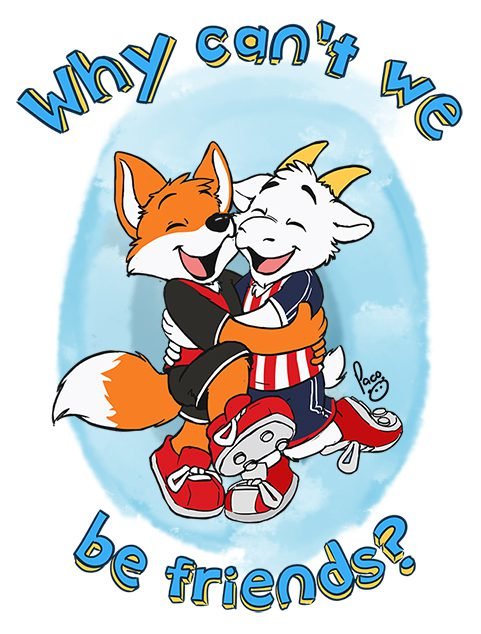
Millions of Evangelicals have read my writing since I first started blogging in 2007. Most of them never leave comments, but thousands of their fellow brethren have over the years. Sadly, many of their comments are judgmental, hateful, and argumentative. I have previously shared that some of these God-fearing, Jesus-loving, Holy Spirit-filled Christians turned to threatening me with violence. And yes, threatening someone with eternal torture in the Lake of Fire is a violent threat; one that countless Evangelicals have made towards me, my family, and the readers of this blog.
Sometimes, “nice” Christians stumble upon my writing. As they read through my responses to hateful Fundamentalist Christians, these “nice” Christians are appalled by what some of their born-again family members say to me. Often, “nice” Christians will say that nasty, hateful believers aren’t “real” Christians. Using the No Scotsman Fallacy, “nice” Christians excise from their religious family anyone who gives their tribe a bad name. Problem solved, right?
If that’s all “nice” Christians did, I would have no objection. If Christians want to fight amongst themselves about who is and isn’t a “true Christian,” have at it. I couldn’t care less. If Christians want to have a food fight with each other, put it on pay TV, buy some beer, and enjoy the bloodshed. The problem, however, is that “nice” Christians see the atrocious behavior by their crazy uncles and rabid brothers on this site, and they automatically assume that the reason I am an atheist is because I was, in some way, harmed by Christians. This is patently false, and no matter how many times I correct the record, they refuse to change the strawman of me they have built in their minds. In their minds, if I were only exposed to “nice” Christians, I would see the light and return to Jesus.
Here’s the problem with this kind of thinking: how I was treated by church members, colleagues in the ministry, and other Christians played little to no part in my deconversion. My partner and I spent countless hours talking about Christianity and our evolving loss of faith. There wasn’t one discussion about the “hurt” caused to us by Christians. That discussion did not happen until after we left the faith; one that continues to this day. You see, it was AFTER we left the Jesus Salvation Club that the ugliness, hatred, and judgmentalism came flowing from our Evangelical family, friends, and colleagues in the ministry as a broken sewer pipe spewing effluent in every direction; splattering a couple they once believed were examples of devoted followers of Jesus with smelly, putrid shit.
No matter how often I explain to “nice” Christians why I deconverted, they convince themselves that if Christians were just nice to me, I would return to Jesus. Years ago, an Independent Fundamentalist Baptist (IFB) evangelist took this approach to me, even though I warned him it would not work. We would chat back and forth; he even sent me $200. By all accounts, he was and is a nice guy. If we lived closer to one another, we would likely be close friends. As I continued to share with him why I wasn’t a Christian, a curious thing happened. This preacher of the KJV started listening to me; to my actual explanations for deconverting. One day, I got an email from him that said he was no longer a Christian. Did I jump up and down for joy? No, because I knew that he would pay a high price for walking away from the ministry and the true IFB faith. His kindness to me didn’t convert me, and neither did my kindness deconvert him. For both of us, our loss of faith came when we reinvestigated our beliefs, especially the central claims of Christianity. While how we were treated post-Jesus by Christians played no part in our deconversions, it certainly affects how we view some segments of Christianity today.
To “nice” Christians who come upon this blog, I give this advice: shut up and listen. Instead of analyzing my story, psychoanalyzing me, or combing through my story with a nit comb looking for the “real” reason I deconverted, how about letting me tell my own story, in my own words, on my own terms. Instead of making snap judgments, take time to read ALL of my story. And then, ask questions instead of rendering judgment
Millions of people have read my writing over the years, including countless Evangelicals-turned-atheists. For those of us raised in Evangelical churches before we deconverted, we are painfully aware of the practice of friendship evangelism or love bombing. Evangelicals are taught to shower unbelievers with fake love and friendship. Love bombing and friendship evangelism are fake because their goal is not friendship; it’s conversion; it’s increasing attendance and offerings.
Evangelicals-turned-atheists (and other former Evangelicals) develop skills that help them spot fakery or false motivations from a mile away. We understand the buzzwords and tactics used by “nice” Christians. Thus, when a “nice” Christian starts working their “magic,” unbelieving readers become irritated, often wishing I would send them packing. And I typically do, though sometimes it is good to be reminded of how “nice” Christians ply their wares.
To “nice” Christians who are offended by this post, I offer up a challenge: You may freely comment on this blog, but you cannot mention God, Jesus, the Bible, or your personal testimony. These things do not interest most of us. If your objective is to be a “nice” Christian, this should be easy for you to do. However, most followers of Jesus won’t accept this offer. Why? Because the real reason they comment on this site is to put a good word in for Jesus. And that’s okay. All I am asking is that “nice” Christians be honest about their motivations (as we all should).
Bruce Gerencser, 68, lives in rural Northwest Ohio with his wife of 47 years. He and his wife have six grown children and sixteen grandchildren. Bruce pastored Evangelical churches for twenty-five years in Ohio, Texas, and Michigan. Bruce left the ministry in 2005, and in 2008 he left Christianity. Bruce is now a humanist and an atheist.
Your comments are welcome and appreciated. All first-time comments are moderated. Please read the commenting rules before commenting.
You can email Bruce via the Contact Form.








